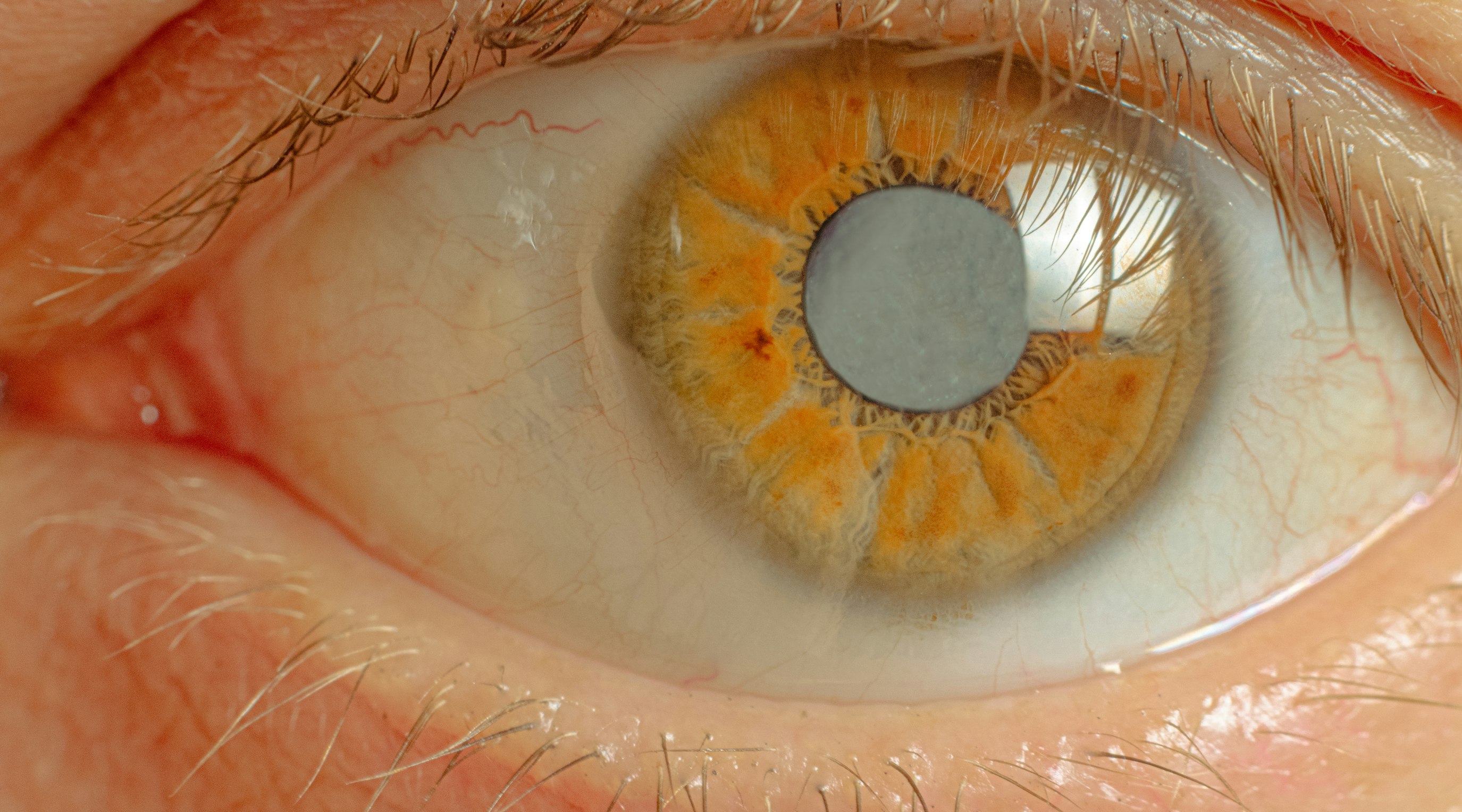Can medicinal cannabis help sufferers of glaucoma?
5 min read
Sam North
Contents
Glaucoma is a complex disease. Almost never linked to just one single problem, but rather a group of conditions that can result in vision impairment or even total blindness. It is one of the leading causes of blindness in adults, and is split into three main groups -
- Primary Glaucoma – There are two types of primary glaucoma. Primary open-angle glaucoma (POAG) or primary angle closure glaucoma (PACG). Primary Glaucoma is the most commonly diagnosed form of glaucoma.
- Secondary Glaucoma – This type of glaucoma occurs as an after-effect of other medical conditions or trauma.
- Developmental Glaucoma – Glaucoma in children and babies. This type of glaucoma is extremely rare and only affects about 5 in 100,000 children.
The range of symptoms that glaucoma sufferers present with are varied, with the most common including:
- severe eye pain
- red eyes
- headaches
- nausea, which can lead to vomiting
- blurred or lost vision
Glaucoma was among the first conditions to become associated with medicinal cannabis treatment, and for good reason. Research into the field of cannabis as a potential treatment for glaucoma has been ongoing since the 1970s.
Several studies have shown that medical cannabis may be as effective at lowering intraocular pressure and eye inflammation as traditional medications, if not more so. Cannabinoid treatment may also help relieve the pain associated with glaucoma.
Cannabis, glaucoma, and the ECS
The endocannabinoid system
The Endocannabinoid System (ECS) is a vast, interconnected network of cannabinoid receptors found in the brain, the central nervous system, and the peripheral nervous system. Signalling chemicals (known as endocannabinoids) interact with the ECS receptors, and are then broken down by enzymes. It is an important regulator of both physiological and pathological processes and is responsible for maintaining balance, or homeostasis, in a wide range of bodily functions including appetite, sleep, mood, inflammation, and pain.
Cannabinoids are naturally found in cannabis (phytocannabinoids) and also have the ability to interact with the ECS, which is the reason they are able to produce their therapeutic and psychoactive effects.
The ECS is fully present in the eye and plays a major role in the modulation and regulation of intraocular pressure and inflammation.
So, how does cannabis interact with the ECS in a positive and therapeutic way for people dealing with glaucoma?
The possible alleviating effect of cannabinoids in relation to glaucoma symptoms, and more specifically optic nerve inflammation and intraocular pressure, has been studied extensively.
The active compounds in cannabis, such as delta 9-tetrahydrocannabinol (THC) and cannabidiol (CBD), seem to have the potential to reduce intraocular pressure by decreasing the production of aqueous humour within the eye.
The activation of the ECS receptors by phytocannabinoids, specifically CB2, also may reduce the level of immune cell migration, which in turn lowers the amount of inflammation in the optic nerve.
There is also evidence that points to the possible anti-inflammatory role of cannabinoids that interact with the CB1 receptor (THC) and also “may have therapeutic relevance for corneal surface damage and pain.” While this research is still in its infancy, it does show promise for the reduction of pain in glaucoma sufferers.
Testing and treatments for glaucoma
Early diagnosis for glaucoma is vital, as once vision impairment or loss has occurred, it is impossible to reverse. This can be an issue, as the disease can progress without any symptomatic signs, but there are risk factors that should be taken into account -
- Age – Glaucoma is a degenerative disease, and is more likely to occur in people over the age of 65
- Certain ethnic groups have a higher risk of developing glaucoma – people of Asian, African, and Caribbean descent are at the highest risk.
- Certain secondary medical conditions – people dealing with diabetes, or a range of separate eye conditions, should be tested more regularly.
Glaucoma can be detected during regular eye testing, even before you notice any symptoms. The NHS suggest getting your eyes tested every two years.
There are several traditional treatment options available for glaucoma, with the most common being eye drops. Laser eye treatments are also available, but these are only recommended if the eye drops aren’t working. Trabeculectomy surgery can be performed to help improve drainage of fluid out of the eye, as can aqueous shunt implantation.
While all of these options should be considered, it is worth noting that this study showed that “there are indications that cannabinoids may have comparable and, in some cases, superior efficacy and fewer side effects compared to traditional immunosuppressive therapeutics”.
Conclusion
Glaucoma can be a deliberating, sometimes even disabling disease. The current treatment options come with a range of unwanted side effects, so it is obvious that there is potential for cannabis-based treatments. Cannabinoids, like CBD and THC, may have promising effects on intraocular pressure and inflammation that reduce the rate and severity of vision impairment in glaucoma patients, as well as lowering the amount of pain linked to the disease. Further research is necessary to fully understand the therapeutic benefit that cannabis has to offer in this realm, but it certainly looks like a viable treatment option.
It is imperative to discuss your symptoms and potential treatments with a qualified medical professional. Consulting with your doctor can help you make an informed decision about the best course of action for you.
Releaf understands the importance of medical cannabis in treating various medical conditions. With our tailored monthly packages, specialist consultations for medical cannabis, and a unique medical cannabis card for protection, you can access the treatment you need without worrying about the stigma.
Share article
Did you like this article?
It is important to seek medical advice before starting any new treatments. The patient advisors at Releaf are available to provide expert advice and support. Alternatively, click here to book a consultation with one of our specialist doctors.
Elevate your wellness with medical cannabis
Get comprehensive care, convenience, and confidence with an all-in-one treatment plan.
Am I eligible?Authors
Sam North, a seasoned writer with over five years' experience and expertise in medicinal cannabis, brings clarity to complex concepts, focusing on education and informed use.
medically reviewed
Editorial Policy
All of our articles are written by medical cannabis experts, guided by strict sourcing guidelines, and reference peer-reviewed studies and credible academic research. Our expert clinical team and compliance specialists provide valuable insights to ensure accuracy when required. Learn more in our editorial policy.
Need more help?











